
Building Emuna
To build emuna, we must pray for everything, even the most trivial things. By praying for the little things in life, we learn to take nothing...

With Hashem’s loving guidance, this chapter will teach us how to build emuna.
The Right Address
A person must ask Hashem for emuna.
Once, a soldier complained to the author about trepidations and worries. The author told him to strengthen his emuna. The soldier argued that he already had strong emuna.
The author elaborated: "You believe that there’s a Creator of the world, but you don’t believe that He personally takes care of you. When we have emuna in Divine Providence and recognize that everything Hashem does is for our very best, we don’t worry."
The soldier then asked, "In that case, how do I build emuna?"
The author answered, "Ask Hashem to grant you emuna and to help you believe that everything He does is for the very best; pray for the awareness that there’re no tribulations without transgressions. Ask Hashem to withhold severe soul-corrections as long as you are trying your best to correct yourself."
"What? I can ask Hashem for emuna?"
"Do you have a better address?" asked the author.
"We ask Hashem for all of our material needs, so why not ask for our spiritual needs too? Hashem won’t give us material things that we don’t need or that are detrimental to us, but He always gives us what our souls need. So, if you ask for emuna, you’re sure to get it! Ask Hashem to help you believe that He’s the Address for everything – health, livelihood, material, safety, and spiritual needs."
Every creation has a spark of emuna. Prayer, particularly personal prayer – speaking to Hashem in one’s own words – has the ability of fanning that spark into a brightly-burning flame.
Reb Natan of Breslev composed an entire collection of personal prayers. A close examination of these prayers show that they all rotate around a central theme, the request for emuna. When one builds emuna, all prayers are subsequently answered.
Even more noteworthy is the fact that Reb Nosson was a scholar and ordained rabbi, a kabbalist, and an individual of extreme piety. Despite his remarkable holiness, he never failed to ask Hashem for more and more emuna.
Personal Prayer
Personal prayer is one’s individual discourse with Hashem, in one’s own language and one’s own words. The wonderful attribute of personal prayer is that one needs no prescribed text, time, or place to speak to Hashem. Anywhere (except for places expressly forbidden in religious law, such as in the bathroom or shower) and anytime is opportune for personal prayer.
Personal prayer is the key to building emuna for the following reasons:
1. Speaking to Hashem on a daily basis instills emuna in a person’s heart.
2. Having one’s personal prayers answered greatly reinforces emuna.
3. Personal prayer is a cogent tool for personal improvement; by overcoming negative traits, one builds emuna and vice versa.
4. Hashem shines truth and emuna in the hearts of those who thank Him on a daily basis.
5. By confessing one’s transgressions to Hashem daily in personal prayer, one attains the cognizance that everything Hashem does is for the very best.
Tangible Emuna
Rabbi Asher Yeshayahu Karelitz, the famed Chazon Ish of blessed and saintly memory, writes that a person attains tangible emuna by asking Hashem for every single need, from large to small, even the most mundane of requests.
For example, you’re on the way to the shoe store; talk to Hashem while you’re walking or driving, and say: "Hashem, please help me find the right pair of shoes at a price I can afford. Let them fit properly and be comfortable. Let them be attractive too, so I can wear them for Shabbat and the holidays." You’ll be amazed to see how you find exactly what you want! Such prayer makes emuna tangible.
The Chofetz Chaim, of blessed and saintly memory, teaches that a person should speak to Hashem like a child speaks to a loving father – simply, sincerely, and in one’s own words. Such prayers – earnest, heartfelt requests for mercy, understanding, and Divine assistance – are always heard.
Reb Nosson of Breslov writes that Rebbe Nachman once spoke to one of his disciples about clothing. He said, "You must pray for everything. If your garment is torn and must be replaced, pray to God for a new one. Do this for everything. Make it a habit to pray for all your needs, large or small. Your main prayers should be for fundamental needs (of the soul) – that God help you in your devotion, that you be worthy of coming close to Him. Nonetheless, you should also pray even for trivial things" (Sichot HaRan 233).
Rebbe Nachman stresses, "God may give you food and clothing and everything else you need even though you do not ask for them. But then, you are like an animal. God gives every living thing its bread without being asked. He can also give it to you this way. But if you do not draw your needs through prayer, then your livelihood is like that of a beast. For a human must draw all necessities of life from God only through prayer."
Reb Nosson once needed a button for his coat. Rebbe Nachman told him, "Pray to God for it" Reb Nosson was astonished to learn that one must even pray to Hashem for such seemingly trivial things. Seeing his surprise, Rebbe Nachman asked, "Is it beneath your dignity to pray to God for a minor thing like a button?"
To build emuna, we must pray for everything, even the most trivial things. By praying for the little things in life, we learn to take nothing for granted and build the emuna that everything comes from Hashem. The foundation of emuna is the cognizance that Hashem is the Source of everything and that we are dependant on Him for all our needs – every breath and every heartbeat – every moment of our entire lives.
When people insist on believing in their own power and abilities, they expose themselves to tribulations that are designed to reveal their futility. Oftentimes, feelings of complacency invoke problems almost immediately. Here’s an example: A person is smugly driving on the freeway in a new Mercedes feeling like he owns the world, and suddenly gets a flat tire. When he attempts to change the tire, he discovers that his spare is deflated. He must now call a tow service, waste time, and lose money – all because of a tiny nail on the highway – which is nothing other than an inanimate messenger from Hashem to show the man in the Mercedes that he controls nothing.
One-stop Shopping
The main manifestation of emuna is prayer.
Emuna brings a person to prayer. Praying to Hashem is like one-stop shopping – all your needs are under one roof. Hashem is the address for health, for livelihood, for success, or for sending a solution to a problem. The more one prays, the more one sees how remarkably those prayers are answered.
Hashem won’t fulfill requests for material wealth or possessions unless they’re beneficial for a person. But, requests for spiritual wealth – for more emuna, more understanding of Torah, or for assistance in fulfilling a mitzvah – are almost always answered. The bulk of our prayers should focus on our spiritual needs, the nourishment of our souls.
The Vessel of Prayer
Prayer is the vessel, or receptacle, of Divine abundance. A person must be specific in prayer, and elaborate to Hashem exactly what he or she needs or wants.
People often wonder why we need prayer at all, for Hashem reads our hearts and minds and knows exactly what we need! Very true, but Hashem gives us the power to pray so that we’ll seek Him and develop emuna. If our needs were fulfilled automatically, without ever having to ask for them, we’d never seek Hashem or emuna, and our souls would wither.
In order to know how to pray, we must learn about what we’re praying for. The more specific a prayer, the better vessel of Divine abundance it becomes.
When learning about emuna, we should ask Hashem to help us internalize each stage of our learning. Once we’ve learned about the first stage of emuna, namely, that everything in the world is a product of Divine Will, then we should incorporate it our prayers, as follows: "Hashem, help me believe that everything comes from You. Help me realize that my wife’s yelling at me is none other than Your reprimand, so that I won’t lose my temper and ruin the peace at home. Help me realize that my success at work today was a blessing from You, so that I’ll thank you all the time…," and so forth.
After we’ve learned the second stage of emuna, namely, that everything Hashem does is for the very best, we can create a new receptacle of Divine abundance by praying to implement this too. A sample prayer in this case would be, "Hashem, help me realize that everything you do is for the very best, and even if I fail to understand how or why, help me believe strongly that everything that’s happening in my life is for the very best." This principle should also be applied when we learn the third stage of emuna as well, that everything is a message from Hashem to accomplish a specific purpose.
Prayer designed to implement our learning is a cogent spiritual vessel. Hashem especially loves those prayers that are the outcome of our Torah learning, for they show that we are internalizing the Torah and applying it to our daily lives. Practical application of Torah, or living according to Torah, is the loftiest motivation of Torah learning. Hashem is ever so happy to answer our prayers to implement what we learn.
Rebbe Nachman of Breslov writes (Likutei Moharan II:25) that we strive to convert our Torah learning into prayers, and beg Hashem to teach us how to properly implement what we have learned. When a person truly desires to apply and internalize the Torah’s lessons, Hashem readily answers those prayers; even more, Hashem derives indescribable joy from the prayers that stem from Torah learning.
According to Rebbe Nachman’s teaching, by learning about emuna, then converting our learning into prayer, we’re assured of acquiring more and more emuna, the secret to success and happiness in this world and in the next!




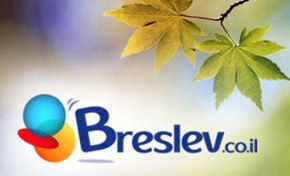
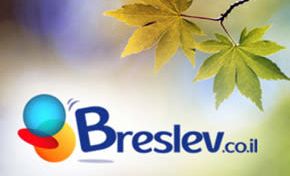
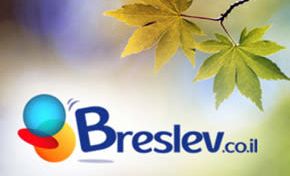
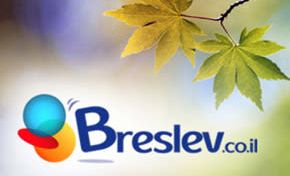



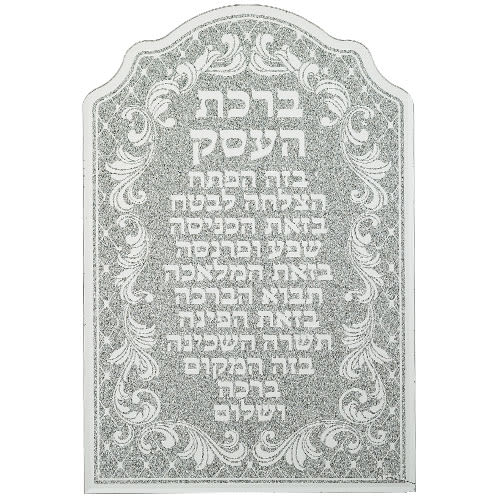
Tell us what you think!
Thank you for your comment!
It will be published after approval by the Editor.